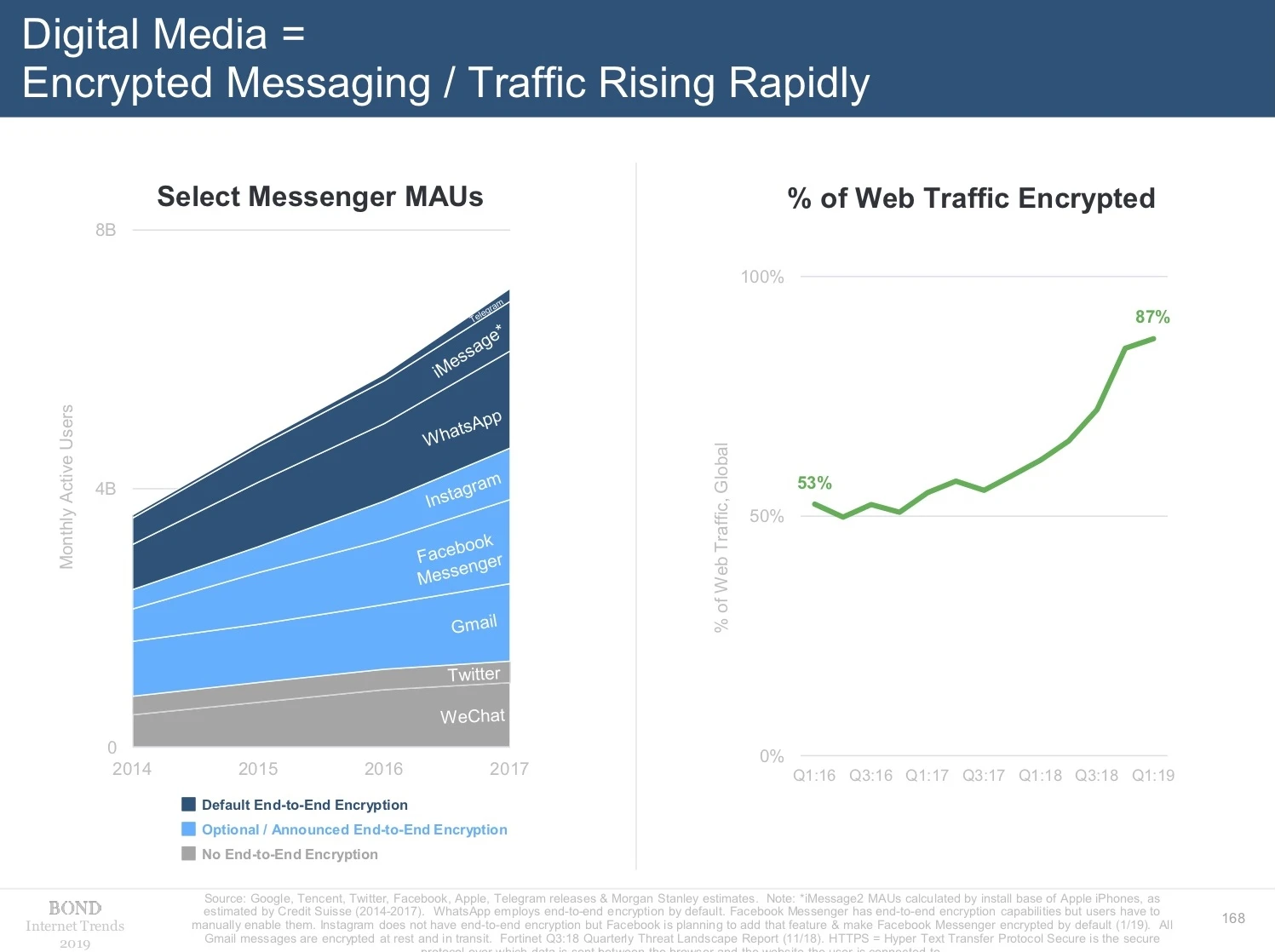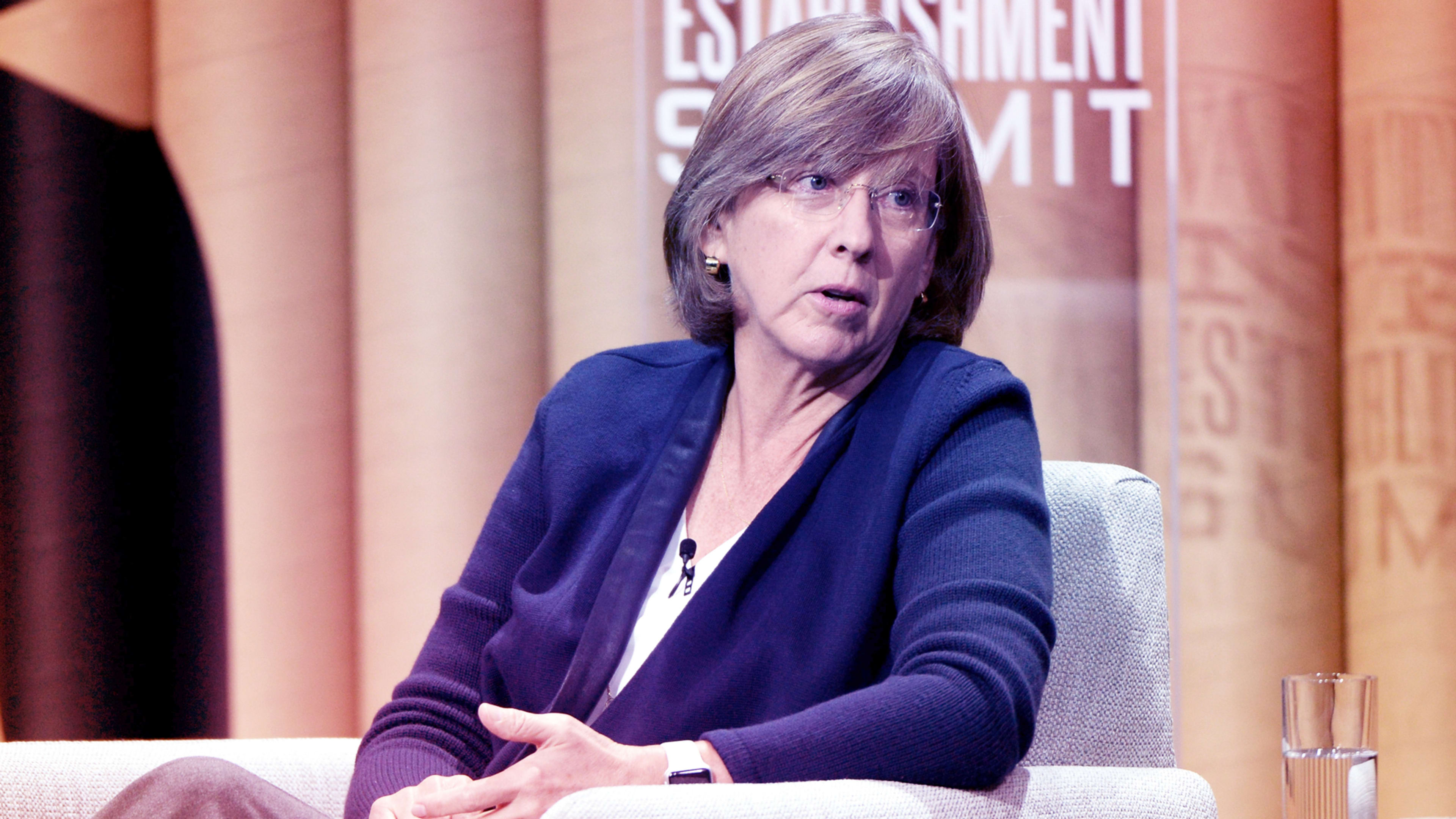Legendary venture capitalist Mary Meeker has delivered her yearly “Internet Trends” report, and while the 333-slide monster is stuffed with telling stats, one particularly important reveal is that online communication is becoming more secure and private, and fast . . .

Meeker’s numbers show that in the first quarter of this year, 87% of global web traffic was encrypted, up from 53% just three years ago.
And so much has happened in those three years. Mainstream users are taking their own online privacy seriously for the first time since the dawn of the web. All this after witnessing a massive Equifax breach, learning that Facebook allowed a Trump-connected political consulting firm to access the personal data of 87 million of its users, and finding out that law enforcement increasingly relies on access to secure messaging to solve crimes.
Meeker cites another study showing that 52% of consumers say they’re concerned about internet privacy, a number that’s actually been falling over the past few years. These calming anxieties could be the result of regulatory action by the EU (GDPR privacy law) and the state of California (CCPA privacy law), and actions of tech companies to add more privacy controls to devices and services.
The growth in encryption helps explain why Facebook is now talking about becoming a “privacy-focused” company, and moving toward creating smaller, less public, social networking experiences for users. Social networking could start looking less like the Facebook newsfeed and more like secure group messaging sessions. But as Meeker points out, Facebook-owned WhatsApp has always featured end-to-end encryption by default, while Facebook Messenger users must turn on encryption themselves.
Meeker also reports a leveling off of social media usage growth, continued increases in internet ad spending (much of which still goes to Google and Facebook), an increasingly visual means of communicating on social networks, continued growth of “freemium” business models, increasing mobile data usage, and growing numbers of people working in “on-demand” businesses like ride hailing and food delivery.
Meeker presented her famous slide deck, which she started creating during the Clinton administration, at Vox/Recode’s Code Conference in Scottsdale, Arizona on Tuesday. After serving as a high-profile Kleiner Perkins partner, Meeker left the firm in 2018 to start her own fund, Bond Capital.
See the whole “Internet Trends Report” here.
Recognize your brand’s excellence by applying to this year’s Brands That Matter Awards before the early-rate deadline, May 3.
